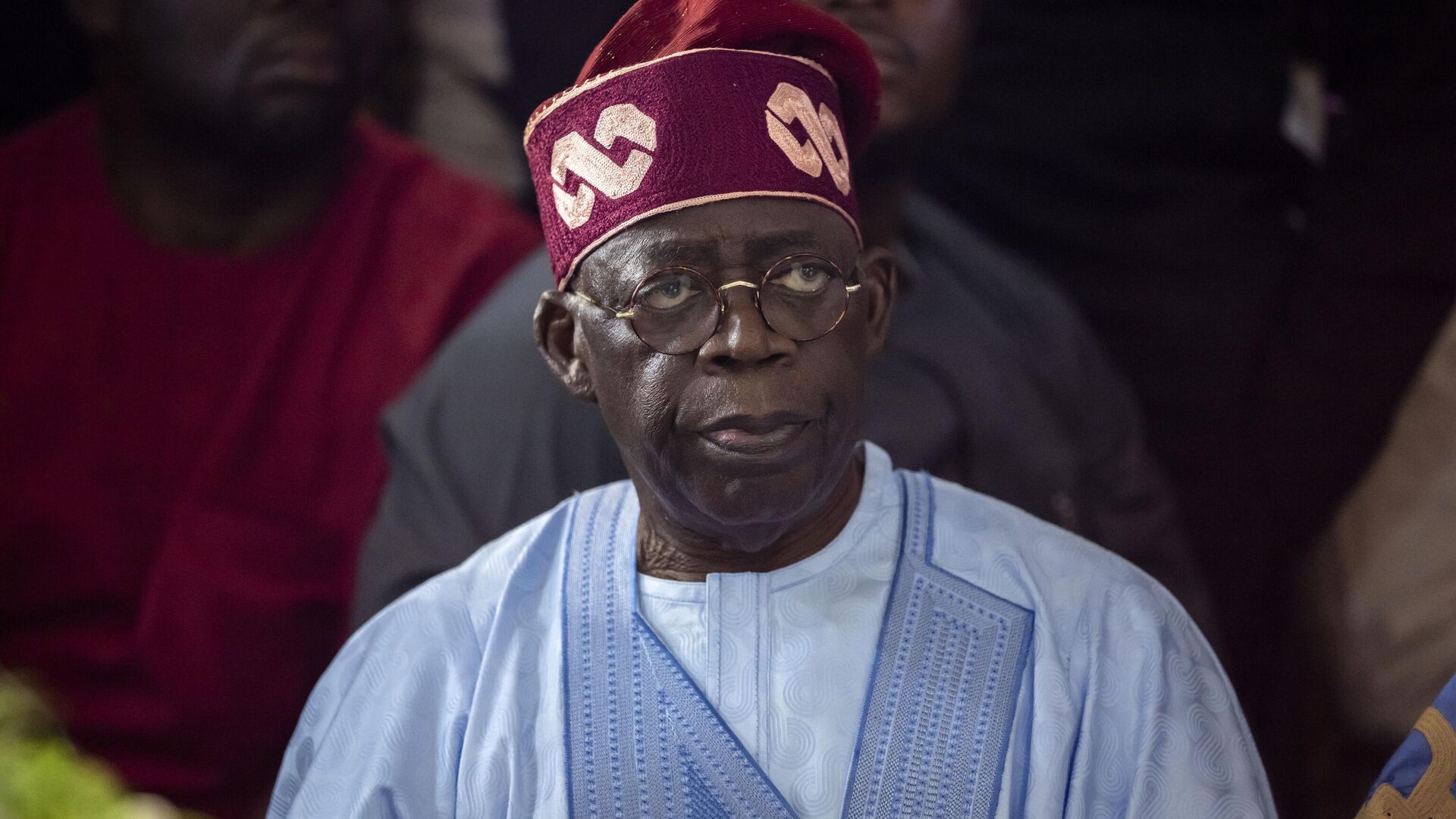https://en.sputniknews.africa/20240609/nigerian-lawmaker-to-send-tinubu-bill-on-return-to-regional-governing-system-next-week-report-1066947956.html
Nigerian Lawmaker to Send Tinubu Bill on Return to Regional Governing System Next Week: Report
Nigerian Lawmaker to Send Tinubu Bill on Return to Regional Governing System Next Week: Report
Sputnik Africa
Nigeria practiced a regional system of government after gaining independence in 1960, where each region independently solved its problems, managed mineral... 09.06.2024, Sputnik Africa
2024-06-09T14:28+0200
2024-06-09T14:28+0200
2024-06-10T12:42+0200
sub-saharan africa
nigeria
bola tinubu
west africa
legislation
politics
government
history
law
https://cdn1.img.sputniknews.africa/img/07e7/0b/03/1063293869_0:160:3072:1888_1920x0_80_0_0_49b282a49032a4e291051d5b421c6d22.jpg
Next week, Nigeria's President Bola Tinubu may receive a bill that suggests the reinstatement of the regional form of administration for the country, according to the Nigerian newspaper Punch.Akin Fapohunda, the author of the private bill, has reportedly chosen to submit the proposed law to the president, as the latter has the authority to introduce it to parliament as an executive bill.The National Assembly is now considering the bill that suggests the reinstatement of regional governance in Nigeria, and it is anticipated that the bill will be approved before October 1, 2024, according to media reports.The bill, however, was disowned by the House of Representatives last week, according to reports.The bill was proposed because Nigeria was governed under Decree 24 of 1999, which was enacted by the then military government "without the express consent of the people." The latter now want and "effectively demand" a change in the constitution based on the federal/regional system of government, the bill, which circulated on the internet, read.A regional system of government existed in the West African country until the military coup of 1966, as a result of which Major General Johnson Umunnakwe Aguiyi-Ironsi abolished the federal structure of the country and concentrated powers at the center, believing it could promote unity and strengthen cooperation between ethnic groups. Although later that year Colonel Yakubu Gowon repealed these provisions, the de facto situation has not changed much, according to local media.In 1979, Nigeria transitioned from a military administration to a centralized presidential system of government that has been maintained to date. The latter is characterized by the significant role of the president in the system of government bodies, combining in his hands the powers of the head of state and head of government, while during military administration, power belonged to representatives of the military.
nigeria
west africa
Sputnik Africa
feedback@sputniknews.com
+74956456601
MIA „Rossiya Segodnya“
2024
Christina Glazkova
https://cdn1.img.sputniknews.africa/img/07e7/0b/07/1063380906_0:0:673:674_100x100_80_0_0_79628b4d0cd9f29291a57aa13bbf9e7a.jpg
Christina Glazkova
https://cdn1.img.sputniknews.africa/img/07e7/0b/07/1063380906_0:0:673:674_100x100_80_0_0_79628b4d0cd9f29291a57aa13bbf9e7a.jpg
News
en_EN
Sputnik Africa
feedback@sputniknews.com
+74956456601
MIA „Rossiya Segodnya“
Sputnik Africa
feedback@sputniknews.com
+74956456601
MIA „Rossiya Segodnya“
Christina Glazkova
https://cdn1.img.sputniknews.africa/img/07e7/0b/07/1063380906_0:0:673:674_100x100_80_0_0_79628b4d0cd9f29291a57aa13bbf9e7a.jpg
nigeria, bola tinubu, west africa, legislation, politics, government, history, law
nigeria, bola tinubu, west africa, legislation, politics, government, history, law
Nigerian Lawmaker to Send Tinubu Bill on Return to Regional Governing System Next Week: Report
14:28 09.06.2024 (Updated: 12:42 10.06.2024) Christina Glazkova
Writer / Editor
Nigeria practiced a regional system of government after gaining independence in 1960, where each region independently solved its problems, managed mineral resources, and paid taxes to the center. But the system changed in May 1966 under the rule of the military led by Major General Umunnakwe Aguiyi-Ironsi, who ruled from January to July that year.
Next week, Nigeria's President
Bola Tinubu may receive a bill that suggests the reinstatement of the regional form of administration for the country, according to the Nigerian newspaper Punch
.Akin Fapohunda, the author of the private bill, has reportedly chosen to submit the proposed law to the president, as the latter has the authority to introduce it to parliament as an executive bill.
The
National Assembly is now considering the bill that suggests the reinstatement of regional governance in
Nigeria, and it is anticipated that the bill will be approved before October 1, 2024, according to media reports.
The
bill, however, was disowned by the House of Representatives last week, according to reports.
The bill was proposed because Nigeria was governed under Decree 24 of 1999, which was enacted by the then military government "without the express consent of the people." The latter now want and "effectively demand" a change in the constitution based on the federal/regional system of government,
the bill, which circulated on the internet, read.
"Whereas the Federal and Regional governments are to operate within the provisions of this Constitution, it is within the discretion of the ethnic blocs within the States that constitute a given region to aggregate or disaggregate as Provinces, Divisions and Districts, while being in control of their affairs without let or hindrance at whatever level of governance," the document read.
A regional system of government existed in the West African country until the
military coup of 1966, as a result of which Major General Johnson Umunnakwe Aguiyi-Ironsi abolished the federal structure of the country and concentrated powers at the center, believing it could promote unity and strengthen cooperation between ethnic groups. Although later that year Colonel Yakubu Gowon repealed these provisions, the de facto situation has not changed much, according to local media.
In 1979, Nigeria transitioned from a
military administration to a centralized presidential system of government that has been maintained to date. The latter is characterized by the significant role of the president in the system of government bodies, combining in his hands the powers of the head of state and head of government, while during military administration, power belonged to representatives of the military.


